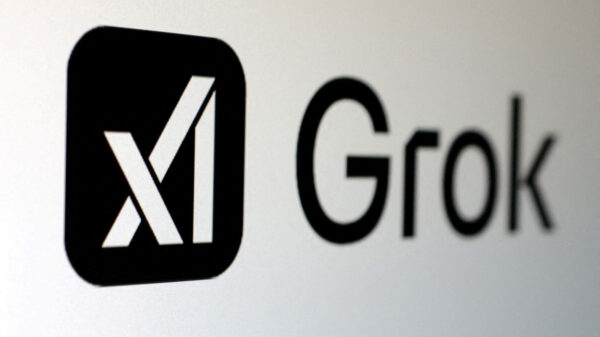NAIROBI, Kenya, Sept 25 – Islamic banking, otherwise known as Shariah-compliant finance, is growing in popularity, with local financial institutions unveiling new products to capture this evolving market.
To understand more, Capital FM spoke with Absa Bank Kenya Head of Islamic Banking, Tego Wolasa, and below is an excerpt of that conversation:
What is Islamic Banking and how is it different from conventional banking?
- Islamic Banking is a banking system that conforms to tenets of Shari’ah. Money is not treated as a commodity, instead profit is earned through real economic activity such as buying and selling goods, not through interest. Therefore, when a customer has a financial need, we facilitate the buying and selling of goods and services at a profit instead of lending them the money on interest. For example, if a customer approaches the bank and is seeking a loan of Kes. 100,000, we first inquire about the intended purpose. If the customer says he wants a refrigerator, the bank will purchase it and sell it to him at a profit. This process eliminates interest while facilitating real trade. This approach aligns with verse 275 of Quran chapter two which states, “God has permitted trade and prohibited interest.”
What are the basic principles of Islamic banking?
- Prohibition of Interest (Riba): Charging or paying interest is strictly forbidden in Islamic finance. Instead, profit must be generated through legitimate trade and investment activities.
- Risk Sharing and Profit-Loss Sharing: Financial transactions are structured so that risk and reward are shared between parties. Common contracts such as Mudarabah (profit-sharing) and Musharakah (joint venture) embody this principle.
- Asset-Backed Financing: All financial transactions must be backed by tangible assets or services, preventing speculation and ensuring real economic activity.
- Ethical Investment: Investments should avoid businesses involved in activities considered harmful or unethical under Islam, such as alcohol, gambling, pork products, and arms manufacturing.
- Avoidance of Uncertainty and Speculation (Gharar): Excessive uncertainty and speculative practices are prohibited to foster clarity and fairness.
Why is it important for Shari’ah compliance in Islamic banking?
- Financial Inclusion: Kenya has an estimated 6.5 million Muslims. Shari’ah-compliant products ensure that this significant segment of the population is not excluded from financial services.
- Reputational Integrity: Adhering to Shari’ah principles helps Islamic banks maintain their credibility and avoid reputational risks, especially among their core clientele.
- Customer Trust and Growth: When customers are confident in a bank’s Shari’ah compliance, they are more likely to engage with additional services, contributing to customer loyalty and business growth.
- ESG Alignment: Islamic banking aligns with Environmental, Social, and Governance (ESG) principles. Shari’ah compliance falls under the ‘Social’ pillar, emphasizing ethical, transparent, and inclusive practices.
What are some of the regulatory gaps in Islamic banking and how can they be addressed?
- The Islamic banking industry in Kenya faces significant regulatory challenges stemming from the absence of a comprehensive and Shari’ah-compliant legal framework, lack of centralized Shari’ah governance, conventional regulatory approaches inconsistently applied to Islamic finance products and limited judicial and dispute resolution adaptability. Addressing these gaps requires a multi-pronged reform involving legislative amendments, establishment of central Shari’ah advisory bodies, regulatory tailor-making, capacity building, and stakeholder collaboration.
- Additionally, we drafted some white papers for Islamic banking in Kenya in 2018 that is yet to go through parliament so that we can have the act of parliament to govern Islamic Banking end to end from a regulatory point of view. Such reforms will not only promote the growth and stability of Islamic finance in Kenya but also uphold the constitutional and economic rights of the Muslim population and endorse Kenya’s position as an inclusive financial marketplace.
Why is interest (riba) such a significant issue in Islam?
- Riba is considered unethical in Islam because it entails exploitation, promotes social and economic injustice, creates burdensome debt traps, and corrupts both individual morality and societal cohesion. Islamic banking therefore places critical importance on fairness, justice, and mercy in financial dealings according to Shari’ah principles.
When we talk about ethical banking in the context of Islamic banking, what exactly are we addressing? Why is ethics so important in this context?
- This strongly aligns with the principles of ESG. It means conducting financial activities strictly according to Sharia principles, ensuring fairness, transparency, risk-sharing, and social justice while avoiding activities considered harmful or exploitative, making it a distinctive and comprehensive form of ethical banking.
Does interest / riba relate only to consumption loans, or apply to commercial loans as well?
- It applies to paying for both personal and commercial facilities. It also applies to earnings from deposits.
Does the prohibition of Riba apply equally to the loans obtained from or extended to Muslims as well as non-Muslims?
- The prohibition is product specific and not client specific. The prohibition applies to everyone consuming the product. Even if it’s a sovereign entity so long as they come for the Islamic products.
If Islamic banks do not invest in interest-based activities, then how do they generate profit to pay to their customers?
- First if we removed the deposit taking part, then Islamic banking is not even banking. It becomes a normal trade/business. We are prohibited from selling money but allowed to sell goods and services. If a client walks to the bank for a loan of Kes. 1 million, instead of just giving him the million, we finance his needs. If it was for instance purchasing land, we could either buy the land and sell to the client for a profit or co-own the land and sell our share of the land to the customer at a profit in piecemeal.
Is Islamic banking meant only for Muslims?
- It’s open to everyone. Islamic Banking is for customers who prefer Shari’ah Compliant, values-based and ethical financial services.
What has prompted Absa to focus on Islamic finance and what is the agenda going forward?
- Absa Bank has a rich history of pioneering Islamic Banking in Kenya, being the first bank to introduce a Shari’ah-compliant products 20 years ago.
- Secondly, there was a demand and push from our Muslim clients to provide Shari’ah compliant services.
- We are also inspired by our brand purpose which is ‘Empowering Africa’s tomorrow, together… one story at a time.’ Our ambition is continue driving the financial inclusion agenda which is one of our key pillars at Absa Bank Kenya. We are a pan African bank and very deliberate in our approach to onboard everyone.
- Finally, the move is inspired by the growth of MSMEs is key to us and there is sizable population in Muslim populated areas such as Eastleigh in the SME space. Last year, we opened our first fully Shari’ah-compliant La Riba Branch at BBS mall – in line with our commitment to continue evolving in line with our customers’ changing needs.
What are some of the products that customers can look forward to when it comes to Islamic banking?
- Every product that is there in banking has been Islamised and customised to customer needs. Personal accounts and facilities, Business accounts and facilities, corporate accounts and facilities, Credit cards, mobile facilities, other services such as internet banking. Basically, everything that we have in the banking industry is what is offered through our La Riba Banking services.
What is the future of Islamic banking in Kenya?
- The future is very bright and optimistic. We have the first ever Islamic Banking conference organized by Absa this August on 18th and 19th and top of the agenda is addressing the gaps in the regulatory framework.
- Currently the segment has 2% of total market share but has huge potential since we have around 12% Muslim population in Kenya. Average annual growth of Islamic banking is 19.7%.
- There is also growing interest in Islamic banking from other entities such as Islamic Saccos, Islamic insurance, Islamic investment banks and Islamic pension is further growing Islamic financial services.











































